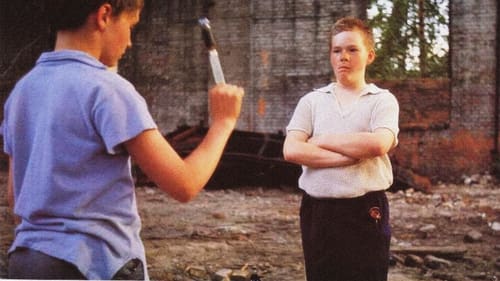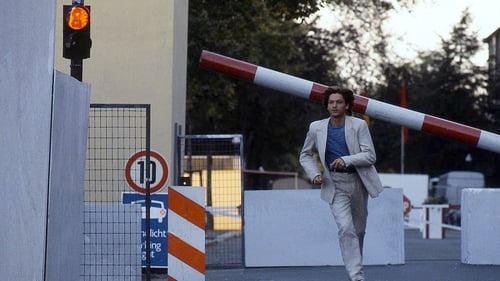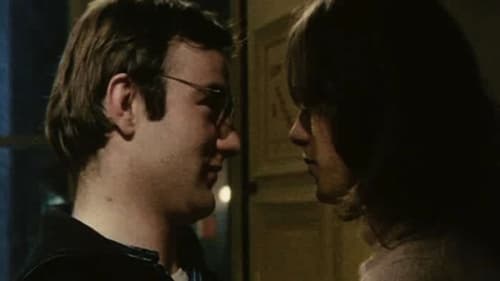
Alte Frau
Anna and Lisa, two young women, meet by chance in the vestibule of a bank, and decide after that to go on together leaving a successful trail of bank-robberies through Germany.

Nachbarin

Jordi alt

When Micha's mother leaves his irascible father, he tries to prevent their divorce by any means he can think of, but his attempts to hold the family together lead to a catastrophe...

Wahrsagerin
In 1939, after barely escaping the Nazis, a Gypsy family returns to Switzerland only to be torn apart by racial persecution in the benign guise of children's welfare. This fictionalized story of Jana, an eight-year-old Gypsy girl snatched from her parents and consigned to a life of orphanages and bleak foster homes, is based on a little-known chapter of Swiss history: From 1926 to 1972, the state-supported Pro Juventute, a children's aid foundation, forcibly removed some 700 Gypsy children from their families, in order to sever the ties with their culture and assimilate them to a "better way of life." The underlying aim was to preempt a new generation's caravans from following their nomadic traditions along Switzerland's country lanes.

Rudi Kowatsch, 42 years old, divorced, two kids, jobless. One day he's hired to sell knives ("Solinger Messer")..

Mutter

Old Woman
A young Russian man arrives in Berlin in search of a woman, but becomes entangled with two others one of whom falls in love with him and another who represents a classic Russian heroine like out of a novel from one of his countrymen idols.

Dame

Mrs. Lehmann

alte Frau
After the essay "On Marionette theatre" by Heinrich von Kleist.

Evis Mutter
Sternberg lands with his parachute in the bed of a stewardess, in the car of an airport employee and finally on a freeway service area. There he meets Harry. Harry is blind and he joins Sternberg who is looking for his Hedi. Together they land in the flat of the model married couple, Alf and Evy. With his appearance he upsets the day-to-day life of the couple.

Oma Krause
Meier, a paperhanger in East Berlin, inherits from his father in West Berlin. With this money he wants to fulfil himself the dream of his life: a journey around the world. He buys a forged West German passport and pretends to go on a trip to Bulgaria while he really is off to see the free world. When he wants to return to East Berlin he finds himself in an unbelievable predicament and his double life begins. He can't keep away from his East German friends. As with all the best comedies, the action builds up to an eventual crisis. It's a light comedy, which won several national Film Academy Awards. The film is very political, with lots of political jokes/innuendos which only Germans will understand. One is left feeling what a total obscenity that stupid Wall was, dividing one people for 30 years (1-2 Generations) simply by the coincidence on where you just happen to be in the early morning on the 13th August 1961.

Frau Feuerbach

Olga
Hans Castorp, fresh from university and about to become a civil engineer, comes to the Sanatorium Berghof in the Swiss Alps to visit his cousin Joachim, an army officer, who is recovering there from tuberculosis. Intending to remain at the Berghof for three weeks, Hans is gradually contaminated by the morbid atmosphere pervading the place. Wishing very much to be considered a patient like the others, he achieves his ends and stays in the sanatorium for ...seven years. During this time, he has enough time to take part in the furious philosophical debates pitting against each other Settembrini, a secular humanist, and Naphta, a totalitarian Jesuit. And to fall in love with the beautiful but enigmatic Clawdia Chauchat. When he is finally discharged in 1914 - along with all the other patients - it is only to plunge into the horrors of World War I.

Frau Behnke

Witwe Weyermann
The "Our Gang" type adventures of German working class kids from a Berlin apartment building (number 67) during the early 1930s. With Nazism's rise, however, their tight-knit group unravels. One leader, Paul, becomes a Nazi.

Uwe Friessner’s first feature, At the End of the Rainbow, follows the exploits of a West Berlin teenager named Jimmi who ekes out a living through petty theft and part-time hustling, hangs out in punk clubs, and who, for reasons which this film subtly details, is thoroughly unemployable. Drawing on his own experience in trying to help a young runaway who eventually committed suicide, Friessner wrote into Jimmi’s story several older students who attempt to find work for him, and who give him shelter for a time in their commune.









